"DENNIS ALCAPONE interview by Tommy Fox of Rudie's HiFi radio Program for WCSB 89.3FM, Cleveland, Ohio - USA, January 24, 2009. Special thanks to Irie Sistable (KTUH - 90.3FM Honolulu, Hawaii) who transcribed this interview.
 Tommy Fox (TF): In the background there you're hearing Dennis Alcapone alongside Hopeton Lewis with one called Judgment Day. That one is out of Treasure Isle. We also heard This is a Butter which is on Sunshot Record Label, and back to Treasure Isle for DJ's Choice, and let me pull this down, Dennis Alcapone, are you there? Tommy Fox (TF): In the background there you're hearing Dennis Alcapone alongside Hopeton Lewis with one called Judgment Day. That one is out of Treasure Isle. We also heard This is a Butter which is on Sunshot Record Label, and back to Treasure Isle for DJ's Choice, and let me pull this down, Dennis Alcapone, are you there?
 Dennis Alcapone (DA): I'm right here man. Dennis Alcapone (DA): I'm right here man.
TF: All right, it's good to hear from you Sir, how's things going?
DA: Good so far, Everything is copacetic man.
TF: Good, good, good. And you are calling form London?
DA: London, England, yes...
TF: Okay, and how is the weather�
DA: I am calling from cold London.
TF: Cold London, and you are calling to cold Cleveland Dennis (laughing) Yeah, we are down in the teens today
DA: Okay...
TF: Yeah...!
DA: Yes, we get in the cold and the breeze man, and you know that combination is not too good, ya know.
TF: Right, right, right, yeah. Yeah, so I would like to talk with you about your early days, back in Jamaica, if you don not mind that?
DA: No man, let us go ahead then.
TF: Alright, Now you were born in Clarendon, is that correct?
DA: Yes, I am a Clarendonian (chuckling)
TF: But you were raised pretty much in Kingston, spent most of your youth in Kingston.
DA: Yes, I grow up in Kingston.
TF: And what were you doing when you were growing up? You were going to school and I understand you were trained as a welder, is that correct?
DA: That is correct, yes
TF: Okay, and what got you into music as a youngster growing up in Kingston?
DA: Well I used to love music from birth (chuckle), right. I'd listen to the DJs at the time on the
radios. Ya know, we had two radio stations in Jamaica, RJR and JBC. And they used to play some really nice music ya know. And that is where I got hooked from then, listening to all them American R&B music ya know? And people like Ray Charles, Fats Domino, Sam Cook, Drifters, Impressions, all of those artists� And way back when, people like Louis Prima, and Sachmo, all those artists man, made some brilliant music. Those must be my influences really.
TF: Now Jamaican music was not really being played on the radio at the time in Jamaica, was it?
DA: Well, to be honest with you, in the early days that I�m talking, like for instance, the early Louis Prima days, we did not have a music of our own, you know? We use to listen to Latin music coming from Cuba. We could pick up that station some time, ya know? But we use to mostly get the America records playing on the radio stations because we weren�t producing at the time.
TF: Now how old were you when you started attending sound system dances, what as a teen I assume?
DA: Yes, you see, well really I was living in Kingston 13 at Welton Park Road, and there used to be a dancehall about 2 minutes from where I live. So whenever the dance is going on, starting, it is mostly on Saturdays, the kid's dance, and when the dance is going on, before dance start, you see the sound. The truck will drive up with the sound system in it and they started to unload the box, I will be down by my gate watching everything. And as a likkle boy I was curious. So I would walk up to the dancehall gate and watch them unloading the truck and taking the speakers into the dancehall. Tying up the steel arms on top of the dance gate, or up in a tree, or something like that, and you would be smelling aroma of curry goat. Curry goat coming out from the dancehall, you know? Because in those days they didn�t buy meat from the market, they�d buy a whole goat and kill it themselves, ya know? So that meat is rank (hee hee).
TF: Yeah, yeah. Now what sounds were you checking out? Were there particular sounds that you followed as a youngster?
DA: Yes. Those sounds at the time was people like Duke Reid, Sir Coxsone, King Edwards the Giant, Count Bell the President, Count Pete the Whip, Sir Percy the Welterweight, Sir Mike the Dragon, all those sounds, Count Bell the President. All those sounds were playing at the time. It were 'lot of other sound playin in Jamaica in the early days. You know, from time to time different sound would come to that particular dancehall, it is called 20th A Dancehall to play, you know. So, I would be listening to all those sounds sometime or another.
TF: Now, you started your own sound, "El Paso." That was what around 69, 70?
DA: That was somewhere around 67, 68, somewhere around there.
TF: And had you Deejayed on sounds previously from that, or you just get your experience attending different dances?
DA: No. I wasn't a DJ on another sounds. I did not start DJing a sound until we started our sound, El Paso.
TF: Now, was the DJ Lizzy involved with El Paso sound?
DA: No, Lizzy was the DJ for King Jammy's sound system. Because King Jammy's was from that time ya know? Lot of people think that King Jammy's started in the 80s, but King Jammy's was around before El Paso. You use to have King Tubby's and Prince Jammy's. He was "Prince" at the time, and he had King Tubby's ya know, because Jammy's was King Tubby's apprentice.
TF: Right, right.
DA: Yeah, so Lizzy was his DJ, Jammy DJ. But we get together because each time Jammy�s come to Kingston 13 to play, I would flop him.
TF/DA: Laughter
DA: Right. And he would end up at my dance, you know, because there is no one in his dance so he would leave and come to my dance.
TF: Laughter�that�s great!
DA: That is how we made friends.
TF: Who was involved in El Paso sound then?
DA: It was me and this guy named Winston Camera that actually started it. But you had DJ in it like Samuel the First, Prince Francis. And when I left there was a whole heap of DJ that actually came out of sound, people like Sky Juice was doing it one time, Rankin Joe was doing it one time. Bunny Roots, Jack Sawyer?(Sour?). Is quite a few people that came after I left El Paso. Dillinger use to come round the sound as well and I use to actually give him the mic and let him get him practice you know? Because he was living across the road from me. We were neighbors. Yeah.
TF: How were you coming up with the records that you were playing? What kinds of records were you playing on the sound back in the day?
DA: Well, we were playing people like Alton Ellis, John Holt, the Paragons, all the top artists at the time. You know, some time we would check in a few R&B songs, ya know? Because we used to have house parties in those days where people use to actually rent the tile, you know and rub down the wall paper you know. Yes, so we would drop in a few soul records, R&B at the time, you know, with the ska and the rocksteady.
TF: When you started El Paso sound, had you any aspirations to actually go into a studio and record at that time?
DA: No, that was not in the thinking at all. That came long after when Keith Hudson came and invited me to the studio to record.
TF: And Keith Hudson, now he was the first producer to take you in to the studio?
DA: Yes. He is the first I produce a record for.
TF: What can you tell me about that experience? Your first time in the studio to record with Keith Hudson?
DA: Well we use to hang out on the walls in JA you know, like for instance, the gate. We would sit at the gate and reason. You know, look for the girls that passing. And that was what I was doing one day, me and my friends we was sittin on the wall and all of a sudden I see this man ride up on a bike, his name is Keith Hudson, looking for Dennis Alcapone. No, they didn�t call me "Alcapone" at that time. They called me "El Paso," after the sound system. And he said he is looking for El Paso. And I introduce myself to him and he says he would like to record me. He's got some tracks, you know? We went down to Dynamics Recording Studio and we did a song called "Macka Version." And from there on I did a few records with him, "Spanish Amigo," "Sky is the Limit," "Bad Harvest," and "Shades of Hudson." Quite a few, did probably about 9 songs for him�
TF: It is very interesting the recordings that you did for Keith Hudson, because a lot of his rhythms are very, very moody, and kinda dark. And you have got this over the top- enthusiastic delivery. And so there is kind of this dichotomy when you listen to it because, you know, you are all whooping and wailing and some of the rhythms are kind of dark.
DA: (chuckling) Yeah, that is the vibes. That�s the feeling, you know? At the time when you�re listening to anything that's that good, like good singing or good riddim, you know it can inspire you to wail (chuckling). You know, you�re feeling irie, you know, because sometime you can have a little�pull of (herb) and um, make you feel well-inspired.
TF: What would you say was the most challenging aspect of going from chatting on a sound system to recording in a studio?
DA: Well at first I was nervous because it is not an easy thing to do when you�re just starting out, because you've got an engineer looking in the engineer room, and a lot of people in there as well. And, you know, when I was recording I asked them to turn the lights off (chuckling).
TF: Oh! You are kidding (laughing).
DA: Yeah, it happened so for quite a while I couldn�t record with the lights on. You know, I just wanna go into my own world, ya know, and do what I am doing, you know?
TF: Yeah, yeah. Ah that is funny! So, from Keith Hudson you went straight to Coxsone Dodd? Or did you, um? You also recorded a single with Byron Smith in that time frame too, did not you?
DA: Yes, I went to 13 Brentford Road, which is Studio One, from Keith Hudson. And when I went there, I tell Mr. Dodd that he must change my name to Dennis Alcapone.
TF: And why did you choose Dennis Alcapone?
DA: I was recording as Dennis Smith, which is my original name. But they use to call me Alcapone on the corner, my friends. Yeah, that is my alias. I tell Coxsone to use Dennis Alcapone, and when he did that, then it was a new beginning.
TF: How did you become acquainted with Coxsone Dodd at Studio One?
DA: Well, I use to go to Studio One for dubplates. You know, because we play a lot of dubplates in the dancehall at the time because that was a new craze at the time. We would go to Treasure Isle to get dubplates and also Studio One.
TF: Now dubplates in those days were not dubplates that people think of today.
DA: No, no, no. We were talking about the raw riddim track. You know, it was not. People will call it special, you know, they will call it dubplates. Now it was the raw riddim at the time, you know. It was really nice to be playing the vocal and then you would say, "Here comes version two." You would put the record on and then all of a sudden you don�t hear no singing, it was just the raw riddim. That was really exciting, people would go crazy. Set the dance in a frenzy, you know?
TF: Yeah. Absolutely. Now, did you have to audition for Coxsone, or was he already familiar enough with you that he just took you right into the studio?
DA: Fortunately I did not do any audition, you know (laughing), because I was well establish on a sound system. So everybody know my reputation. So I did not really need to do any audition. I just go straight to the studio and Mr. Dodd tell Morris, which is Sylvan Morris, the engineer, to listen to me and listen to the tracks that I want because I had tracks in my head already that I wanted to record on. So I would tell Morris the tracks to look for. At this time Larry Marshall used to be working in the studio with Morris as well, and he was the one who actually search for the tapes and find the riddims that I need to work on.
TF: Okay. So you could go in there and choose the riddims that you wanted to record?
DA: Yes, most definitely. I chose all my riddims. I choose all of them. Because most of the time when we were recording, Coxsone was not there, you know? Coxsone is on the road doing his business, you know? He would just come in in the evening and listen to what was made in the day. And, if he is satisfied then tings would go ahead. Or if he think there is something that need to be done, he would say it, you know? But we could do what we wanna do.
TF: Yeah. That is great. I mean you really got some of the cream of the crop of Coxsone's rhythms. I mean, when you think about it, Carlton and the Shoes' "Love Me Forever," Delroy Wilson's "Run Run Run," the late, great Alton Ellis� "Sunday Coming." You know, just classics out of the Studio One vaults that you were able to record over. It is just amazing.
DA: Yeah man. It was really a lovely choice. I was actually spoiled for Studio One, you know? Yeah, because there was so much good riddims. Treasure Isle and Studio One, they had the best riddims, you know? U Roy was at Treasure Isle. I select Studio One because it is the two top studios in Jamaica. And we would use the term "We are in a different stable," and if you are in that stable, and there is no good horse in there to ride you cannot win no race (laughter). You know, Daddy U Roy, we were in the top stables in Jamaica; Treasure Isle stable and Studio One. Well, how the Byron Smith thing came about- He had this track called "Barbwire" with Nora Dean that he produce. And he sent call me. Right? I went down to Treasure Isle and he ask me to do a version for him of that music, you know? So he was the one I recorded for first at Treasure Isle. Duke Reid's engineer, Byron Smith, he had a label called, Byron's. And he did not want to put Dennis Alcapone on the record to upset Coxsone. So he put El Paso.
TF: Now, were you under contract with Coxsone at the time?
DA: A verbal contract, yeah. Because Coxsone will knock you out, you know? Coxsone hit hard, yeah, (laughter). He does not take no nonsense. I mean, if an artist was there, if he like you, you should be there then. He want you there. You cannot stray, you know? There was not a contract going around at the time.
TF: Right. Now obviously when he heard "Mosquito One," the song that you recorded for Byron Smith over "Barbwire" rhythm, he obviously heard it and- you have got a very unique voice. It is obviously Dennis Alcapone. Do you remember his reaction to that?
DA: Funny enough, you know, when I made my first record for Coxsone, which was "Nanny Version."
TF: Over Larry Marshall's "Nanny Goat."
DA: Right. When Duke Reid heard that record, right, he sent call me and ask me if U Roy help me to do the record. So I said, "No Mr. Reid." Him said, "Well, that sound like U Roy there." I said, "No, that's me." You know (chuckling)? Right. So, I can remember one evening I was traveling in a van, and about three other guys was in the van and they were talking. And one of the guys said, "Did you hear U Roy new chune?" And the guy says, "No." Him say, "Wicked man!" It call "Nanny Version." By this time him didn not know me, and I did not make him any wiser either. He was telling this guy what a chune is bad, U Roy new chune. So I don not know (how) they mix up both of us because we sound different, you know?
TF: Yeah, absolutely. But I guess at the time, chatting over a record was something that was so new that it would probably be a little harder than it would be, say today, to pick apart who everyone is. Maybe, I am just throwing that out there as a postulate, When you are talking the early 70s, it was probably a little harder to tell the different DJs apart because it was something that was still so brand new.
DA: Yes, yes, yes. You are right, Tommy. People like me, now, I would know. If I am listening to different DJs I would know who I am listening to. But yes, people out there would really, this was new to dem. So, they could not pick up because a lot of other artists, other DJs that people mixin up me with, you know.
...Back to the original question that you ask me about Coxsone�s reaction and me working for Byron's. He didn�t actually discover it. Because I think he was too busy in what he was carrying out as a businessman. He owns Coxsone reggaeland a dancehall . After when Duke Reid drive up the 20 in a dancehall when his sound is gonna play, he would come there in the evening and going to the dancehall and sometime he�d be there messing about with the amplifier. And trying to tune it up and ting. He would buy some beer for some of the people dem that is around there. Before the dance start, he would just jump in his car, he had a fishtail Chevrolet, that was the big car at the time. He would just jump in his car and drive away. I would probably pay or stand outside to get in the dance. I can remember the ting, Coxsone would come in there when his sound is playing.
TF: Now when you were recording with Coxsone, Coxsone was not around. You�re working. You have Larry Marshall there, and you got Sylvan Morris there. And then Coxsone would come in at night and listen to the tracks that you recorded during the day. Do you remember any of his initial reactions when he first heard the recordings that you did there?
DA: Yeah. He say "Bwoy, tracks sound good, you know? You know, the one that sound like it ready for the road." Tings like that, you know? But you see, what we laughing is at the end of the day you see the initial stage of our formed DJ music. There was not a lot of respect, you know? There was not a lot of respect because they just look at it as another version. The respect was going to the vocalists, to the singers at the time, you understand? Because when I made my first record and I tell someone that I make a record, they say, What did you do? I said, I DJ on it. They say, "What is DJing?" I say, I talk. Him say, "Da man cyan talk pon record?!" (laughing) You know what I mean? Because before we guys it was just vocal or instrumental. The singers or the instrumental. Like, people like the Skatalites, Baba Brooks and all those people. So they did not hear of DJ-ing until we. When I made my first record I would not even play it. I took the dubplate to the dance hall one night and someone ask me, "Where is the record?" So I say, "I got it." Him say, "So why do not you play it?" I just would not play it. I just felt a little bit uncomfortable, you know? So we were the ground-breakers, you know? We were the ground-breakers.
TF: Now did Coxsone compensate you for your recordings with him?
DA: No, no, no, no, no!
TF: I�m sorry Dennis. That�s just the story that I hear over and over again from people who were around in those days. Just that they never saw any kind of compensation. That�s too bad.
So I take it that is probably why you moved over to Duke Reid at Treasure Isle?
DA: Yes. Well, Duke Reid. When I went to Duke Reid, I got better treatment, you know? It reach a stage where I was getting a weekly salary at Duke Reid. Yes, me and Lizzy. Because by this time, I had to bring in Lizzy. And Lizzy used to be there with me, and Duke Reid would pay us on the weekends. Yeah. We do other tings for him, you know.
TF: For Duke Reid?
DA: He would ask us to do other tings. Not just recording. We were there, 24/7. I remember sometime he would ask me to go to the airport to pick up an artist. I remember when Paragons were coming in from New York. I was the one who went for them at the airport, and to join them back up with John Holt. He wanted to do a project with them. He send it out to Tivoli. You know?
We were alright, me and Duke. We were okay. I remember one night we was even in the studio and we was going across the road to his liquor store, and he gave me one of his guns to walk behind him. (laughing...)
TF: So when you were recording there he was never ah, notoriously as he was when he did not like the sounds of it, firing bullets up into the studio?
DA: Yes, because Duke Reid liquor store was downstairs and he had a box set up downstairs that he could listen to when you are upstairs recording. And if he hear something down there that is not right, he is coming up the stairs with his guns. He had a rifle on his shoulder and his 45 around his waist. I am telling you, sometime when I see Duke would walk into the studio I cyaan be no better boy than laugh because I say to him, "Man, you look like you are going to war!" He would have a fake hand grenade around his waist as well. And the regular- the gun belt like what a cowboy wear with the bullets dem in it. Yeah man, Duke was a trip man.
TF: Yeah, definitely an intimidating figure.
DA: Yes. And if you don not do what he expect you to do man, he�ll fire some shot. Yes, that is the Duke, you know?
TF: Yeah. What would you say were the main differences from recording at Studio One to recording at Treasure Isle?
DA: To be honest with you, I use to prefer recording at Studio One for one reason: the engineer, which was Sylvan Morris. He is got good vibes, you know. When you are round there in the recording booth and you are looking into the engineer room, you can see him dancing, you know? It encourages you. You see him making some move inside there, playing with the board and ting, you know what I mean? I might really get some inspiration from that, you know? Yes, I think that to me was a difference really.
And where Duke Reid still at is really downtown Kingston, and I say hear sometime you have a recording and you hear a gun shot in the can that you are listening to the music, because that was like the Wild West, ya know?
Yeah, I remember one day I was recording a song and I hear this shot ring out in the can, and when I look in the engineer room I see everyone, no one is paying me any mind as to that. Everybody is looking through the window. I take off the headphone and go around and ask them, "What is happening?" Dem say, "Bwoy, dem just kill the butcher-man across the street." (laughing).
Yeah so, tings like that use to go on really. You know, but Jamaica is one in a million, you know? It is one of dem place weh, you know, it is an adventure. Everyday I get up it is another adventure. You would never be bored. You do not need to go to the cinema to be entertained. And that is why, "I do not think another country put out the amount of record that Jamaica put out for the size of the country.
TF: You�re absolutely right. I mean they have had the most releases per ca pita for years. Years! Since the late 60s.
DA: Exactly, the artists. There 's so much talent there, it is unbelievable.
TF: When you were recording for Treasure Isle, Byron Smith is doing the engineering?
DA: Yes. When I first went it was Byron Smith, and then he left and Errol Brown took over. Yes, because he had Errol Brown. He training him up in the early stages, and then he left. He started his own liquor store and record shop. He move away from the engineer business. And it was Errol Brown, I tink he use to call Mr. Reid "Aunty." Yeah.
TF: Then at Treasure Isle, as at Studio One, you chose the rhythms that you were recording?
DA: Yes, yes, yes. Um, not all of them because "Teach the Children," Duke Reid sent for me specially to do that one. It was a version of a song that John Holt did- that original "Sister Big Stuff" riddim. Yeah, but most of the records, most of the riddims I choose them.
TF: Now when you are doing the recordings at Studio One and Treasure Isle, you are kind of playing off the original vocals. You are answering back to the original vocals. When you�re recording those, were the dubs of those made first? Or was the engineer just kind of spontaneously throwing those (vocals) in? How did that work?
DA: Well we�d edit (the song) before we actually start recording. We would splice in what we want. We would take it out. Part of the vocal we would leave in, you know? But the singing, the singing really inspire you when you are recording. Like, you feed off the vocal, the singer, you know? And most of the time you try answer back to what he is saying, you know? You keep it on the same track.
TF: Now when you recorded "DJ's Choice," and you are naming a lot of the DJs that were popular at the time- U Roy, Lizzy, Big Youth, Scotty- what was the competition like? Was it more camaraderie? Or would you say it was more of a sense of competition or rivalry that was going on at that time?
DA: No. There was no rivalry-really. It was just inspiration, You know? One inspire the other. When you hear someone make a song, you just want to go in the studio and do a wicked song as well. We did not have any competition going on at the time with the DJs. Competition was more with the producers than the artists. The producer is the one who actually want to put a move on the other producer. That is why they used to actually make chune cussing each other. In the early stages, people like Coxsone would make a song throwing some words at Duke Reid, and throwing some words at Prince Buster, and King Edward the Giant. And that�s why Prince Buster would talk about Duke and the King and the Sir, you know? But we did not have any� Um, I remember U Roy did a song once, and he says, "My name is not Alcapone but I can tip up them tone and crack dem bone," ya know (chuckling)? But I did not really answer to it still because I respected him so much as the man who actually break the ice. He�s the one who actually break the DJ ting in Jamaica when he did that chune, "Wake the Town and Tell the People."
TF: Okay. Now from Duke Reid then you moved on to Striker Lee, Bunny Strker Lee?
DA: Yes, Striker. Well Striker now is a bredren, you know? And we move together a lot. He is one of us. You know what I mean? Because Striker did not have a studio.
TF: Right! And I was just going to ask, how did that differ for you. You were recording at Coxsone who had his own studio. You were recording with Duke Reid who had his own studio. Then you�re recording with Bunny Striker Lee who�s renting time out at the studio. How was that different for ya?
DA: Yeah, you see, that is the difference now. You see, when you go to Treasure Isle you would go to Duke Reid�s studio, and Duke Reid would not be one of the boys hanging out. Or Coxsone. Bunny now would pick you up in his car, you know? And a few of us would head for Crossroads up by the Kentucky and buy a couple bucket of Kentucky chicken and we all would tuck in, you know? And then we would head for the studio. So we had that kind of bredren relationship. It is different from the rest of the guys dem, you know? Bunny would sometime come to the dance in the night as well, so it is a different relationship with a producer.
TF: And he was definitely more of a hands-on producer. Definitely much more involved with the sessions, I take it.
DA: Right. Exactly. Now Bunny Lee, because Bunny's the man at the time, did not have a lot of money to record, you know? So when we go to the studio, if he book two hours in the studio, he want to get his money worth because it is not his studio. That two hour he put in everyting he can put in. Sometime when I'm doing recording for him, and I say to him, "Bunny, let me hear da ting." Him say, "No man, you no need fi hear dat no more man. That's done man. Next chune.� (laughing). You understand? So, it�s a difference really. There�s a lot of stuff I do and I am not satisfied. But I did not get a chance to rectify it because time is money.
TF: You recorded the bulk of your early 70�s material with Striker Lee.
DA: Yes, I did a lot of track for him. Quite a lot of music I did for Striker and even when I did the "Guns Don't Argue" it was a Striker. But he gave it to Dynamics, Byron Lee, and they put out that album. But Bunny Lee�s the producer.
TF: And you also had a big hit also over Eric Donaldson�s "Cherry Oh Baby" with "Ripe Cherry."
DA: Yes, that is a Striker production again, and he gave it to Dynamics.
TF: Okay. And then Lee Scratch Perry ended up with a version of that as well.
DA: Yes. How that came about; When I did "Ripe Cherry" and the "Cherry Oh Baby" was going at the time, Scratch wanted a piece of the action. And Bunny gave him a kind of dub cut of the riddim. And he wanted to put Lizzy on it. So we went to Randy's the day with Lizzy, and Lizzy was in the recording box trying to get a vibe for the chune. But it was not working out. So Scratch said to me that I should go round there and actually help him. So I went round there and was trying to show him what he must do to relax on the riddim. What I did there now, trying to show him now, Scratch said, 'Chune finish!" Right. Um, come round, because I ask Lizzy to go on now and record a song. Scratch says, "No man, its alright now." We are done for the day. We are going to keep that one, man. Chune finish! That is called "Well Dread." That is how that came about.
TF: And that was your first recording with Lee Scratch Perry, is that correct, or had you done some previously?
DA: I am not sure. Could be. I am not all too present sure. I did quite a few tracks for him. I did "Spanish Amigo" for him. I did "Place Called Africa" with Junior Byles.
TF: Wait. You did Spanish Amigo for Keith Hudson and Lee Scratch Perry, is that correct?
DA: No. No. "Alpha Omego." Sorry. "Alpha Omego" I did for Lee Scratch Perry, which is a version of "Beat Down Babylon."
TF: Junior Byles, gotcha.
DA: Junior Byles, yeah. "A Place Called Africa." I did quite a few tracks for (Lee "Scratch" Perry). I did "Master Key" for him as well.
TF: There is a good number of tracks you recorded with Lee Scratch Perry. How was it to work with him? Did he have his head together at the time? We know that through the years he is had some mental issues.
DA: No man. He did not have any mental problems (laughing). No, he was quite all right, a very creative guy, you know? Lee Scratch. Very creative, you know? But at that time he was all right. He did not have his mental problem at the time. That happened later over the years. Because he was recording with Bob Marley at the time. And I do not think Bob Marley would have worked with a madman, you know? (Laughing). So Scratch was all right. A lot of people are saying that what he�s doing is an act. But no, I did not know Scratch that way. Scratch was all right. A lot of things happen later on in his life. That is how life is sometime. Change of life can do things to you, you know?
TF: You also recorded with Herman Chin Loy. He is really kind of one of the under-rated Jamaican producers. How was it to work with Herman Chin Loy? I mean he is got some real dissonant rhythms as well.
DA: Yeah, Herman. He had the Aquarius label. Herman, he was more a businessman that actually owned a record shop. You know, but at the time he had a lot of independent producers that would bring their own thing on the side. Herman Chin Loy was one of them. But he was not a full-fledged producer. He was a part-time producer. I think he did some things with Dennis Brown as well.
TF: Oh yeah. "Song My Mother Use to Sing."
DA: Yeah. But he was more a businessman running his record shop at Halfway Tree, Aquarius Records.
TF: And who engineered that session?
DA: I think he did that session at Randy�s. And that was Errol T, Errol Thompson? ET.
TF: Yeah, the great Errol Thompson.
DA: Yeah man. Tommy, at the moment I�m struggling with a cold you know, you see, in this country the weather change so often. I�m here struggling now because I�m going out to Belgium next weekend, and Holland. Yes, I�m trying to stay sound. If you hear me sounding a bit different it�s because this cold is coming on and I�m fighting it.
TF: Yeah. You sound fine Dennis.
DA: With some white rum, honey and lime. (chuckling)
TF: Mmmmm, that�ll take care of it. (laughing).
Okay, you moved to London in 1974?
DA: Well, my first venture into London was 1973. I came on tour and then I went back to Jamaica. And I came up in �74 with Jamaica Showcase which consist of Toots and the Maytals, a young Dennis Brown, first coming to England. Cynthia Richards, a young Sly Dunbar, no one know much about Sly at the time. Sly was playing with a band called Skin, Flesh, and Bone, along with Lloyd Parks and a couple of those musicians. And a figure named Albro. That was the Jamaican Showcase I came up with 1974. And that�s the time when I did a show in Lester Square in the West end of London, with myself, Dennis Brown and Desmond Dekker. And that night Bob Marley came to the show. Bob Marley and Family Man and Carley came to the show. And Bob was backstage with us, and when I went on, no one start before me, I call Bob on the stage and introduce him to the crowd. By this time he was just promoting the Catch a Fire album. And I am looking at the picture right now with me and Bob from that session.
Yeah, so it was 1974 that I really came back and decide to stay for a while, you know?
TF: What prompted you to stay?
DA: At the time, the sound system in Jamaica was going through a crisis. A crisis which rude boys, police, and soldier would stop the dance prematurely, you know? If it is not the rude boy, it is gonna be the police or the soldiers. You know, as soon as dance start somebody's going to make some problem and the dance is gonna end prematurely. And that was happening a lot. It was when the guns are just introduced in Jamaica. And a few rude boys have guns and some of them was trigger happy. Whether they was shooting people or not, they was shooting up in the air and people would run. And the dance would be finish at that time, you know.
When I came to London and went to dances over here and see how the people was going on, it was like a very peaceful environment, you know? Dance used to finish in Jamaica somewhere in the region of about three to four o�clock in the morning. In England, the dance was going on until twelve o'clock in the day (laughing). Yeah, you don't hear no gunshots firing and nothing. People were cursing each other out over the mic and nobody was reacting in no violent way. They did that in Jamaica then there would be some serious trouble. So I said to myself, "I like what is happening here." The dances were nice over here. They were nice and violent-free.
TF: And plus there were lots of Jamaicans that were already over there. I know you hooked up with Sydney Crooks from the Pioneers for some of your early sessions in England.
DA: Yes, Sydney Crooks by name and by nature (laughing). Yes, when I came here in 1973, he was the one who actually used to come for me at the hotel, and take me around and show me the London scene, you know? And that is how we kinda link up, and I made an album for him when I went back to Jamaica. Because he came down to Jamaica because he wanted to change the lead singer for the Pioneers at the time, and he came down to Jamaica scouting to find a new leader. And he was doing some recording and then he asked me to do the versions of those records that he was doing. I made an album called Belch It Off.
TF: And how was it different for you recording in London as compared to recording in Jamaica? Was it much of a difference, or did you adapt pretty easily?
DA: It is very hard in England. You do not have the vibes that you have in Jamaica. You have to be actually working overtime to get a vibes in England. Jamaica is completely different, you know, the vibes in Jamaica. But over here, I think mostly because people was spoiled over here. They did not hang out on the corners like we do in Jamaica. You know, and everybody, get vibing at the same time and you can pick up vibes from other people. That was not here, you know? And true, the country is cold again. Nobody is outside, everybody is in doors. You know, so it is a big difference.
And the engineers as well. They just don't have the Jamaica flava. Even when you finish recording they mix the song, they mix the vibe down into it or, you know they just don�t have it.
TF: Yeah? Even the producers, such as Sydney Crooks, who was a Jamaican anyway?
DA: Yes. But you know, Sydney Crooks was not a producer anyway. He was an artist. But some people can cross over and some just cannot, you know? He was someone that try the ting. He got a few tracks that he did produce, but I would not call Sydney Crooks a producer. Just another man trying a ting.
TF: Now you dropped out of the music scene for a number of years. Was that the very late 70s or early 80s?
DA: Yes. I met a lady in London.
TF: Ah! A lady will do that.
DA: She took me away from the crowd. And she decide that she wanted to marry me, and she did that. And because she did that, now I find myself being a responsible man. Before that I was free and single. My mind was completely free. But now I got responsibility, I got a lady to take care of.
TF: Yeah. So what were you doing to earn a living then?
DA: What was I doing at the time? Not a lot really, you know? Not a lot. Because I do not do a 9 to 5. Right. The years was just going by. You know, with nothing happening because time was changing, the music change in Jamaica from the rocksteady to reggae and then we went through a phase where it was drum and bass music. You know, I did not actually get back until when they started reviving the original music. You know what really happen was Trojan was liquidated, you know, in the 70s. And they was the ones that was actually selling the original Jamaican music. They were the distributors for the most part of the music. So, from when they went into liquidation, someone buy the company and park it, you know? So the music wasn't circulated until this guy called Colin Newman come and buy the company from that man. I think he bought probably 5,000. Right, from then on he started building back up Trojan again, and Steve Barrow went to work with them and start compiling the music. By this time, they didn't have any tapes to run the music from either. Because a lot of the tapes dem get missing up. So they have to find clean records and run back the tracks from record to tape, and started compiling records and put back the bulk of the music back on the market. And people now started requesting the original artists again. Until like a new beginning, what goes around come around, you know? Because right now I am working with -- I was working in that time, in the early stage. Because people wanna know where the roots music is coming from. You know, especially new up here they're crazy about the music.
TF: So then in the 90s you began doing some more recordings again. You began recording with Bunny Lee again. You recorded with Prince Jazzbo and Tappa Zukie. How was it to start recording again after being away from if for what, a good 10 years or so? Did you adapt quickly to it or�?
DA: By this time the music had changed again, it was going into the computer age now.
TF: Yeah, so these are digital rhythms you are recording over.
DA: Digital riddims, yeah. It was easy because I was listening to the guys dem coming from Jamaica because Jamaica is really the launching pad, you know? But while I was here and I was recording I was still in touch with what was going on. Sometime you can do a ting that you don't really want to do it, but someone want you to do it. You know, because recording is an inspiration you know? When you go into the studio to record, you got to be inspired by the music to get the proper feeling for it. It's not something that someone can just tell you to do, and you just do it, especially when you're out of it. When I was in Jamaica I was playing the sound system. So it was quite easy because you are going over the riddims in a dancehall in the night. You know, it's like you're versed in it every night, so it�s very easy when someone call you to go into the studio to record. You already have an idea of what you're gonna do because you play those songs regular in the dancehall.
But coming to London, not playing the sound system, and being out of the industry for so long, it wasn't easy.
TF: So what have you been up to over the past number of years, Dennis? What�s been keeping you busy, musically?
DA: Well I'm on the circuit you know. I am doing a lot of shows all over Europe. I've been down to Brazil, I haveve been to Japan. I came over to your side a couple times. I did the Sierra Nevada Festival in California. But I do not think I work enough in your country. I'm a brand new man in your country now. I wanna come and explore your country.
TF: Yeah man, we�d love to have you here in Cleveland.
DA: Yes, when Dennis Alcapone come to your city mon, it is a brand new man. I�ll be like I was just starting gout because a lot of people never have the pleasure of seeing me work. But right now the work is really good. I have a lot of enthusiasm at the moment because I am working with a singer by the name of Winston Reedy. And when we working on the stage it is like you are listening to the record. So, it is good vibes, you know?
TF: And Winston Reedy himself has been around for a long time.
DA: Yes. Because the first time I came to London, which was 1973, I was working with Winston Reedy at that time. Because the band that back me, called the Experts Band, Winston Reedy was the lead vocalist in that band. So he is been around a long time. He went to work with a band called the Cimerons. The guy mon wicked on stage man, trust me.
TF: I trust you, I believe you! (Laughing) Definitely!
DA: When you listening to Winston Reedy and me it is like you�re listening to the record, you know? Because of dat we team up and we work together throughout Europe. Like I said, next week we are going to Holland and Belgium, and then we're moving on to Scandinavia. And hopefully sometime we'll touch down in your country sometime this year.
TF: Yeah, I'd definitely love it to be sooner than later.
DA: Exactly (laughing...)
TF: Dennis I really want to thank you for taking the time out to call in here and talk to the people of Cleveland on the Rudie�s Hi-Fi show. It is really been a pleasure to talk to you and get to know the roots of DJ music from someone so experienced as yourself.
DA: Yes, it is a pleasure to be talking and letting the people in Cleveland hear me, probably for the first time on the air. But I really wish I was feeling a bit better at the moment, I am actually struggling to keep this interview going because when I wake up this morning I was coughing a lot. This is the time when you pick up a cold, when the weather changes, you know? And because of that Dennis Alcapone is not a 100 % at this moment in time at this interview. Right, so you gotta forgive me for that.
TF: Yeah, no, still I appreciate it.
DA: I'm trying my best to laugh it out.
TF: Well definitely, definitely thank you. Thanks for calling in, it's definitely been a great pleasure. If listeners out there are interested in hearing more about you, do you have a website? Or is your myspace the best place to go?
DA: Yes, you can go on myspace: www.myspace.com/dennisalcapone. Right, you can see a lotta things there and they can read a lotta things about Dennis Alcapone. Right, so chune in to that space, you know, I can say, they can do it inna haste. (Laughing...)
TF: Alright! Well Dennis, I want to thank you once again for checking in. It has been a great, great pleasure and a privilege to talk to you.
DA: Tommy it is a pleasure too mon. I want to big up DIA Records, DIA is the one who is responsible for my coming to America soon. Right, DIA we are working together right now. Right, Barry, big up your status and big up all Cleveland massive. And from Dennis Alcapone saying, "everyting is everyting, man"�
"FROM THE NUMBER ONE STATION HERE COMES (sound of a rooster). Dennis Alcapone coming to America. YEAH, YEAH, YEAAAAAH! All right Tommy." (Laughing...)
TF: Excellent Dennis. Thank you, thank you so much.
DA: Yeah man, everyting bless.
TF: You have yourself a good day and I hope you are feeling better real soon.
DA: Thank you man. Blessed.
TF: Respect.
HOW MUCH DID IT COST TO BRING DENNIS ALCAPONE TO USA?
How much did it cost to bring Dennis Alcapone and Winston Reedy to USA from UK? Factor in 5 years of continued artist development/redevelopment via non-stop hard work to reestablish Dennis Alcapone as not just a "vintage reggae" artist but as a global rock "ska/rocksteady/reggae" alternative icon introducing him to a new young audience. (Reggae fans beyond the '70's and 80's especially in Jamaican/dancehall circles did not remember or knew who Dennis Alcapone was man. "It goes like that." They know of U Roy but not Dennis Alcapone who is the same caliber deejay from the early 70's.) When the campaign was started in 2007, Dennis' Myspace friends pool was 3500+; Myspace friends in 2010 ballooned to 60,000+. The motivation was to surpass U Roy's friends and that was done. Dennis' Facebook friends in 2009 was about 350. After a 2+ year campaign post Sierra Nevada World Music Fest. gig in June 2011 -- Dennis' FB friends ballooned to 5000 with a legion of new young non-Jamaican fans who were into punk, ska-core and dubb reggae. Youtube's Trojan Sound clip deejay session with Dennis Alcapone was about 3700+ views in 2007. After launching the artist development campaign using that video, views ballooned to about 40,000 by 2011. The ultimate result was Dennis Alcapone got more UK and European gigs. In the process D.I.A got Dennis Alcapone on APA roster via John Pantle after being past on by a couple pro booking agents. Associated Press photo journalist came out to document performance in Long Beach, Cali. Jon Phillips of Silverback extended an invitation to visit Controlled Substance Sound Labs while in LA... Dennis got a few radio interviews and ample spins. (Ain't boastin' -- just toastin': when D.I.A is aligned with any artists veteran or up-n-coming novice -- they get noticed. Artists often take this for granted until they realize the grass is not really greener on the other side. Some never toured again and will never go down that path anymore. Their disgruntle and frustrated disposition is often saturated with hatred and covetousness in biblical terms that is usually supported by talking shit and spreading false rumors on line.)
Warren Smith of Sierra Nevada World Music Festival did not stand cost for Dennis Alcapone and Winston Reedy flights, transportation, backup band and accommodation pre DOS of SNWMF appearance. Nor did Warren Smith of Sierra Nevada World Music Fest. wired Dennis deposit prior to crossing the pond. D.I.A executed that while Sierra Nevada World Music Fest. 50% deposit was secured in escrow at Agency for the Performing Arts aka APA via agent John Pantle...
The long-term plan was to establish the veteran Dennis Alcapone as a regular artist on the USA tour circuit. This is not an easy accomplishment for any band or artist without paying lengthy dues. Thinking otherwise is simply a fantasy. Dennis Alcapone would have been a great touring and festival artists. And (un-recouped) investments and efforts were hinging on that happening in about a year or two after the Sierra Navada World Music Fest. The op hinges on aligning with the right people and crews and not egotistical and jealous LA and San Diego Ja-Fake-An slackers who are clueless. Watz up Makeda Dread? "Half the story has never been told..." And from a business standpoint documents including bills are archived as proof...
To be continued...
|

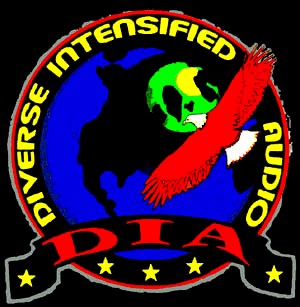
 CLOTHING
CLOTHING







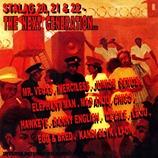



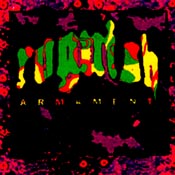
 Tommy Fox (TF)
Tommy Fox (TF) Dennis Alcapone (DA)
Dennis Alcapone (DA)

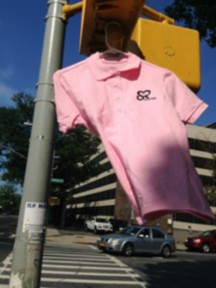
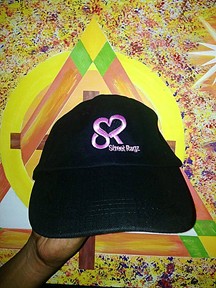






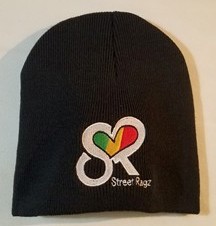
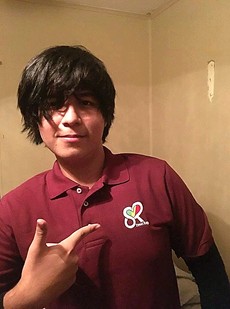
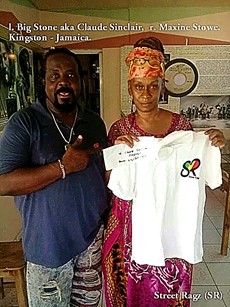


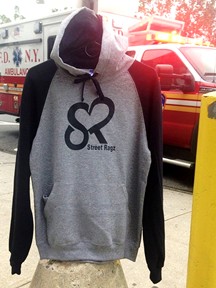
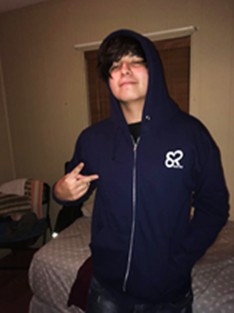


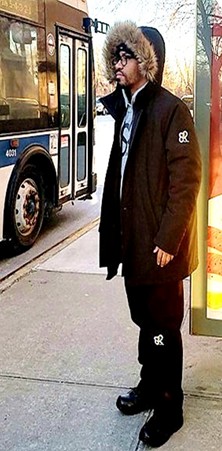



 Now Global Rock Showcase events in any format is the new Punky Reggae Ska Dub Metallic Funky Hiphop party. Hehehehe. Currently Global Rock Showcase-type events are every where from the underground to mainstream. I mean Snoop is touring with Slightly Stoopid. This is a long way from the "isolation periods" when concerts goers used to attend gigs and waited until their bands go on to run up to the stage. Didn't matter who was billed after fans fav band, they would then run away after from the stage after the set. The lines are blurred and today's youths have a smart diverse taste for muzik. They are listening to everything by multi-genre Global Rock bands such as Bad Brains, P.O.D, Slightly Stoopid, Michael Franti & Spearhead, Thievery Corporation and George Clinton... And from a promoters standpoint, why target one audience when they can draw from several. Plus, Global Rock Showcases and similar events bring a diverse audience together under the same roof to co-exists. It is basically the end of the "Iron Curtain" in muzik yo.
Now Global Rock Showcase events in any format is the new Punky Reggae Ska Dub Metallic Funky Hiphop party. Hehehehe. Currently Global Rock Showcase-type events are every where from the underground to mainstream. I mean Snoop is touring with Slightly Stoopid. This is a long way from the "isolation periods" when concerts goers used to attend gigs and waited until their bands go on to run up to the stage. Didn't matter who was billed after fans fav band, they would then run away after from the stage after the set. The lines are blurred and today's youths have a smart diverse taste for muzik. They are listening to everything by multi-genre Global Rock bands such as Bad Brains, P.O.D, Slightly Stoopid, Michael Franti & Spearhead, Thievery Corporation and George Clinton... And from a promoters standpoint, why target one audience when they can draw from several. Plus, Global Rock Showcases and similar events bring a diverse audience together under the same roof to co-exists. It is basically the end of the "Iron Curtain" in muzik yo.